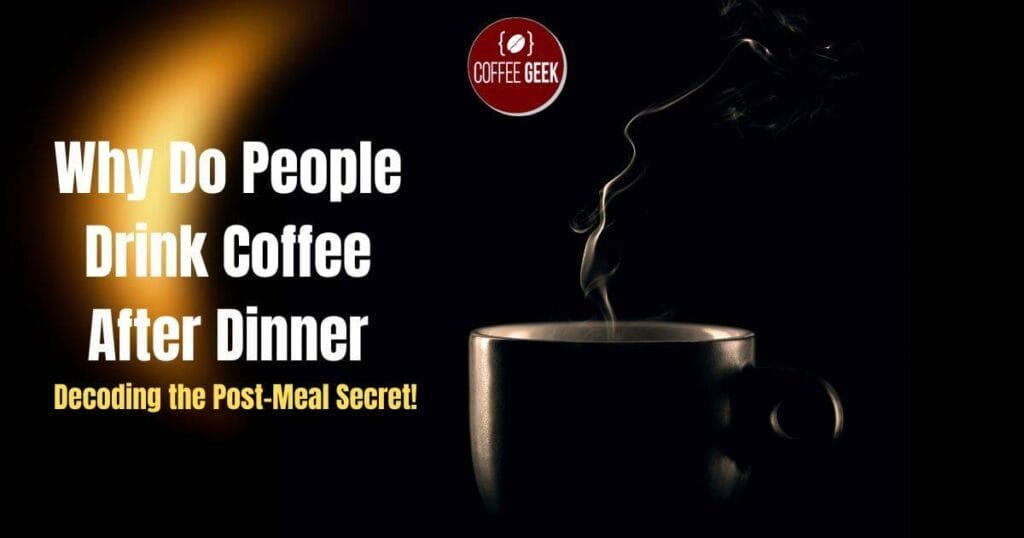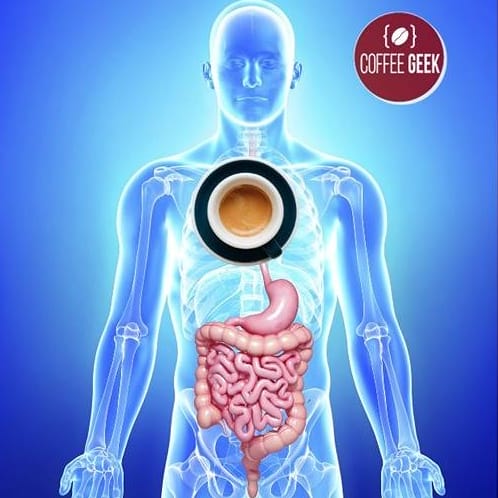People across the globe enjoy a cup of coffee after dinner, turning it into a nightly tradition for millions.
This practice may initially seem counterintuitive, considering the stimulating nature of caffeine typically associated with morning energy boosts.
However, there are several reasons behind this post-meal ritual, ranging from cultural customs to specific health-related benefits.
One of the primary reasons why do people drink coffee after dinner is to indulge in the beverage’s rich flavors that complement savory meals.
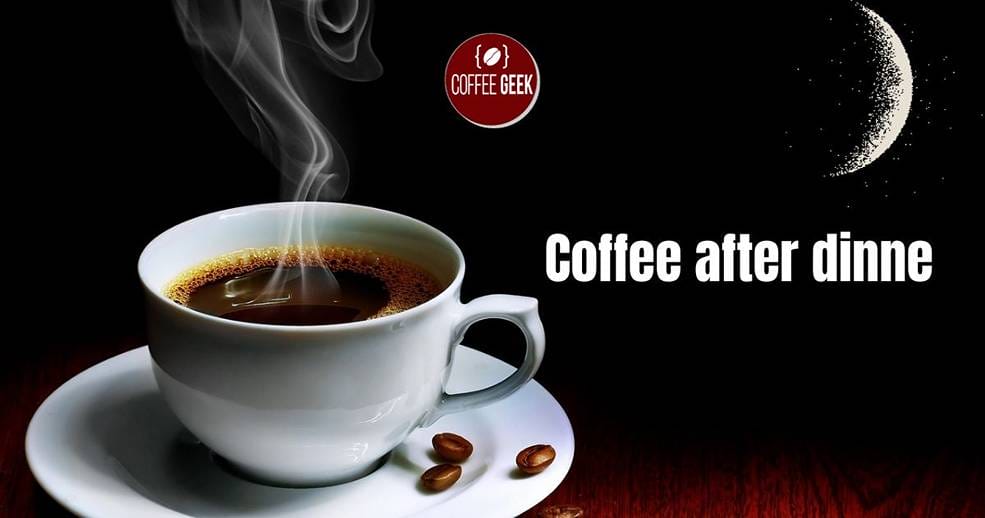
Additionally, drinking coffee serves as a pick-me-up, lending a burst of energy to those who find themselves feeling sluggish after eating.
Moreover, many consider black coffee a suitable low-calorie alternative to sugar-laden desserts when dining out and striving for weight management.
Key Takeaways
Coffee after dinner is a popular tradition, providing flavorful satisfaction following a meal.
Post-dinner coffee can offer a much-needed energy boost to counteract post-meal sluggishness.
Black coffee can be a low-calorie dessert substitute, assisting in weight management efforts.
The Universal Love for Coffee
Why Do People Drink Coffee After Dinner?
The delightful aroma and warm taste of coffee have infiltrated cultures around the world, making their presence known in daily rituals.
One such prominent ritual is indulging in a cup of coffee after dinner. It transcends cultural boundaries and unites people in a simple, yet cherished moment.
Drinking coffee after dinner serves multiple purposes, ranging from socializing to enhancing the dining experience.
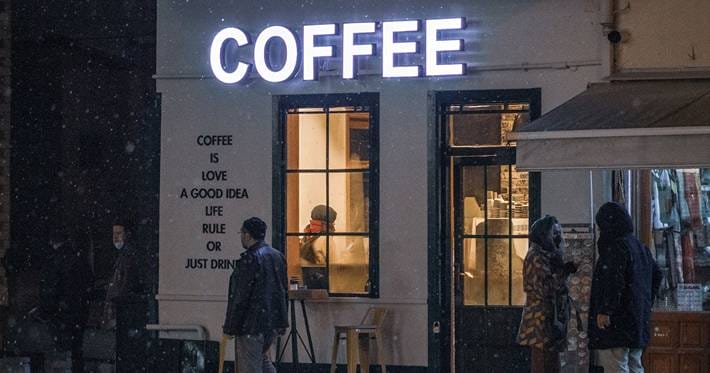
In many cultures, the act of enjoying coffee after a meal is deeply ingrained in their social fabric. Often, it is a way to connect with others and unwind after a long day.
Friends and family gather around to share this cozy beverage, creating an intimate atmosphere. It becomes a perfect opportunity to forge connections, exchange stories, and strengthen bonds with loved ones.
Coffee and Family Traditions
Drinking coffee after dinner also stands as a pillar of family traditions in countless households. A home-cooked meal shared with loved ones, followed by a taste of espresso or high-quality coffee, elevates the experience.
This delightful addition to family mealtime facilitates a relaxing environment fostering quality conversations and cherished memories.
Moreover, coffee holds the potent ability to aid digestion and offer various health benefits.
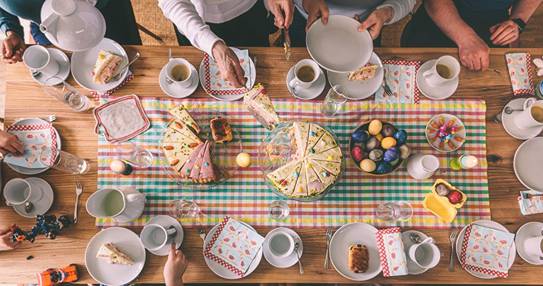
Hence, savoring a cup after an indulgent dinner not only brings people together but also contributes to their well-being, making it a staple in many traditions.
In essence, the universal love for sweet coffee is undeniable. Its presence in cultural and family traditions across the globe speaks volumes about its significance.
The simple act of sipping coffee after dinner has the magical power to bring people closer, enrich their conversations, and enhance their connections, all while stimulating their senses and nurturing their health.
The Science Behind the Savor
Coffee’s Effect on Digestion
For many people, coffee is not just a drink to start their mornings, but also a delightful beverage that completes their dinner. In fact, drinking coffee after dinner can be beneficial for digestion!
The caffeine content in coffee helps to stimulate the digestive system, which can aid in relieving common issues like indigestion and constipation.
Along with caffeine, coffee black contains chlorogenic acids and polyphenols, which are known to have antioxidant properties, helping to cleanse the intestines and promote the digestion process.
Furthermore, coffee can boost the production of stomach acid, improving the overall digestion process.
While regular caffeine-containing coffee provides these benefits, it’s worth noting that decaf coffee also offers similar effects on digestion, making it a great option for those looking to minimize their caffeine intake.
Health Benefits of Coffee
Coffee isn’t just a delicious after-dinner treat; it also has numerous health benefits! For starters, coffee is known for its high concentration of antioxidants.
These powerful compounds help to fight free radicals and protect the body from various ailments. In addition, coffee can give your metabolism a much-needed boost, thanks to its caffeine content.
Regular coffee consumption has been linked to a lower risk of developing certain diseases, including Parkinson’s, Alzheimer’s, and even some types of cancer.
Moreover, the antioxidant properties in drinking coffee have been shown to promote heart health and reduce inflammation.
By incorporating a cup of (preferably black) coffee into your nighttime routine, you can enjoy not only the delightful taste but also the potential health benefits it brings.
So, the next time you sit down for dinner, consider adding a cup of java to your meal for a little extra excitement and well-being!
Coffee and Our Energy Levels
Wake Up Call
Many people enjoy a cup of coffee after dinner to help them stay alert and energized.
This is because coffee is rich in caffeine, a natural stimulant that works to increase alertness and combat drowsiness.
Caffeine does this by blocking adenosine, a neurotransmitter that promotes sleep and relaxation.
This blockage allows other neurotransmitters, such as dopamine and serotonin, to increase, leading to a feeling of excitement and focus.

Coffee as an Energy Boost
Drinking coffee after dinner provides an energy boost that can help individuals power through tasks or socialize well into the evening.
This is important after a carb-heavy meal, which can make us feel sleepy and sluggish.
Caffeine in coffee enhances brain function and cognitive performance, making it easier for us to concentrate and stay engaged in activities we enjoy.
In addition to helping us stay awake, people drink coffee has been linked to improving overall mental function and focus.

This is due to caffeine’s ability to increase the levels of certain neurotransmitters in the brain, while also helping to maintain homeostasis and balance.
When consumed in moderation, coffee after dinner can help people make the most of their evenings by staying more alert and focused, leveraging its natural energy-boosting properties.
However, it’s important to remember that coffee is not a substitute for sleep and should be enjoyed in moderation to avoid potential negative side effects.
Coffee in Weight Management
One of the reasons people drink coffee after dinner is its potential role in weight management! Let’s explore how coffee might help with weight loss.
Coffee’s Role in Weight Loss
Coffee is known to work as an appetite suppressant, which means it can help curb your cravings for late-night snacks and keep you on track with your weight loss goals.
It’s also believed to have an impact on your blood sugar levels, keeping them more stable and reducing the risk of obesity.
Moreover, the caffeine content in coffee acts as a natural stimulant, increasing metabolism and aiding your body in burning calories more efficiently.
This exciting property of coffee may help assist those trying to shed some pounds or maintain their current weight.
Additionally, research suggests that coffee may help regulate insulin levels, which is essential for controlling blood sugar and preventing the storage of excess carbohydrates as fat.
By maintaining stable blood sugar, coffee drinkers might experience fewer cravings for carbohydrate-rich foods, further promoting weight loss.
In summary, incorporating coffee into your daily routine, especially after dinner, might provide some exciting benefits for weight management.
Its appetite-suppressing properties, impact on metabolism, and influence on blood sugar and insulin levels make it a potentially beneficial addition for those looking to manage their weight.
Savoring the Flavor
One of the reasons people love having coffee after dinner is the joy of savoring the flavors.
Coffee, with its complex taste notes, can enhance the overall dining experience and elevate the delightful feeling of indulgence.
Coffee and Desserts
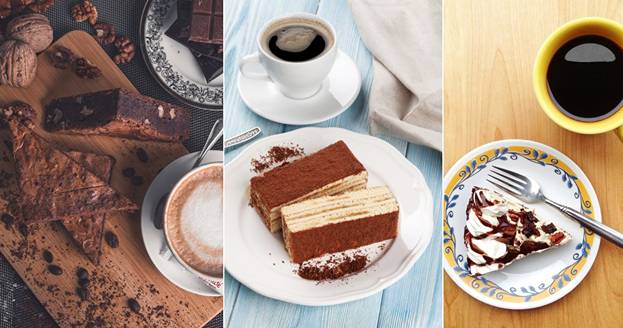
Coffee and desserts share a beautiful relationship, as the beverage lends itself as a complement to many sumptuous treats. The unique flavor profiles in coffee often provide a delightful counterbalance to a sweet dessert.
For example, a cup of coffee with hints of vanilla can perfectly accompany a chocolate cake.
Enjoying a dessert without coffee could mean missing out on the exciting interplay of flavors that both coffee and dessert can bring when enjoyed together.
Additionally, coffee can function as a palate cleanser, allowing dessert lovers to fully appreciate the distinct taste of various sweet treats.
Between bites of a rich, creamy cheesecake, a sip of coffee can reset the palate and make each mouthful feel as delightful as the first.
Coffee Pairings
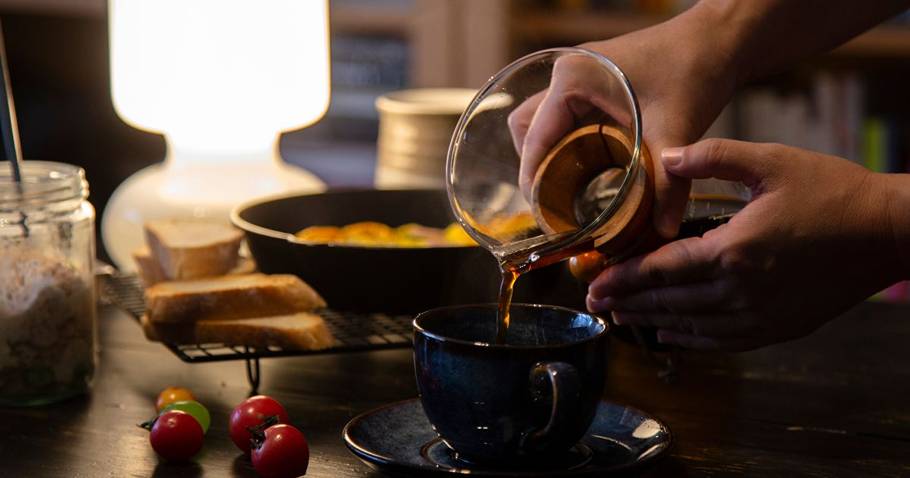
Coffee pairings also play a significant role in why people drink it after dinner. Expertly paired coffee can draw out the nuances of a meal’s flavors, creating a symphony of tastes.
For instance, a spicy dish can be tamed by a mellow coffee with low acidity, while the bright, citrusy notes in a morning drink can enhance the natural taste of fruit-based desserts.
In conclusion, savoring the flavor of coffee after dinner is a treat for the senses. It magnifies the enjoyment of a dessert and enhances the dining experience by highlighting the harmony of flavors.
The bold taste of coffee provides a delightful addition to many meals, turning an ordinary dinner into a memorable culinary encounter.
So, why not let coffee be the grand finale to your next evening meal and savor the experience for yourself?
| Reasons for Drinking Coffee After Dinner | Explanation |
|---|---|
| 1. Enjoyment and Flavor | Many people simply enjoy the taste and aroma of coffee, finding it a comforting and pleasurable way to end a meal. |
| 2. Socializing | Coffee often accompanies social activities, and having a cup after dinner can be a way to continue conversations or relax with friends and family. |
| 3. Boost in Alertness | The caffeine in coffee provides a mild stimulant effect, helping to combat post-dinner fatigue and keep individuals alert, especially if they have more activities to attend to. |
| 4. Digestive Aid | Some believe that coffee can aid in digestion by stimulating the production of stomach acid, potentially helping to ease the feeling of fullness after a meal. |
| 5. Ritual and Tradition | Coffee-drinking rituals are ingrained in various cultures, and having a cup after dinner may be a longstanding tradition or routine for many individuals. |
| 6. Dessert Companion | Coffee can complement sweet desserts, balancing out the flavors and providing a contrasting taste that many find enjoyable. |
| 7. Warmth and Comfort | A warm cup of coffee can provide a sense of comfort and coziness, making it a soothing way to unwind after a meal. |
| 8. Extended Work or Study Hours | For those with work or study commitments, having coffee after dinner may be a practical choice to extend productivity into the evening. |
| 9. Culinary Exploration | Coffee can be seen as a diverse beverage with various brewing methods and types of beans, making it a source of culinary exploration and experimentation. |
| 10. Personal Preference | Ultimately, personal preference plays a significant role; some people simply enjoy the routine and taste of coffee after dinner. |
The Dark Side of After-Dinner Coffee
Ah, the aroma of freshly brewed coffee right after a delightful dinner is seemingly irresistible! However, even with all its perks, there’s a darker side to after-dinner coffee that one must consider.
First, let’s talk about stomach pains. Caffeine can stimulate the production of stomach acid, leading to potential discomfort or even irritation in some individuals.
So, for those prone to heartburn or acid reflux, that post-meal cup can turn a cozy evening into a night of uneasiness.
Speaking of discomfort, bloating is another not-so-fun aspect that could be linked to coffee consumption.
Though it may help with digestion, excess gas can be a side effect. The result? Feeling overly full and uncomfortable even after a light meal.
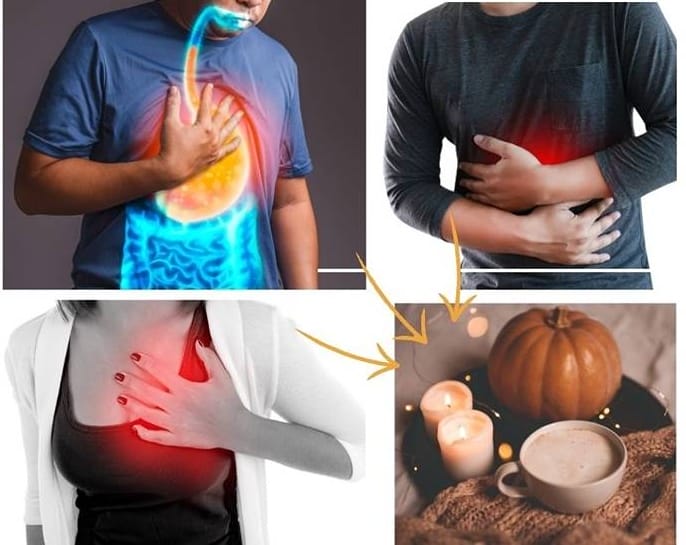
Oh, and let’s not forget about heart palpitations! Caffeine is a stimulant, and in some cases, it can cause irregular heartbeats, especially if you’re sensitive to its effects.
To avoid heart palpitations, it’s essential to know your limits and listen to your body.
Lastly, those who meticulously count their calories might want to consider the extra intake from that delicious after-dinner coffee.
The creamer, milk, and sugar we often add to our brew can substantially increase the calorie count.
Opting for a dark coffee or choosing lower-calorie alternatives, like stevia or almond milk, can help.
So, the next time you crave an aromatic cup of coffee after dinner, remember these potential setbacks.
Though not everyone experiences these side effects, it’s essential to be aware of them.
Just like everything else in life, coffee can bring a dark side when consumed in excess.
Conclusion
Coffee after dinner has become a nightly tradition for many families and a huge part of various cultures around the world.
Restaurants serve coffee routinely after a big meal, with the belief that coffee helps digestion, particularly after a rich meal.
This practice is deeply rooted in national culture, especially in European countries, where expecting people to enjoy coffee after dining out is a norm.
The dinner table in many households and dining establishments isn’t complete without a good cup of the beloved beverage
Frequently Asked Questions
What are the benefits of consuming coffee after a meal?
Drinking coffee after a meal can actually have several benefits! For one, it can provide a feeling of relaxation and signal the end of your meal.
Moreover, coffee contains antioxidants which can help neutralize free radicals in the body, leading to improved overall health.
Beyond that, drinking coffee can also help by increasing alertness and focus for those who need to engage in post-dinner tasks or conversations.
Does decaf coffee serve a purpose after dinner?
Yes, decaf coffee can be a great option for those who prefer to avoid caffeine after a meal.
This way, one can still enjoy the social aspect and delicious taste of an after-dinner coffee without worrying about the stimulant effect of caffeine which might keep them awake at night.
How does black coffee affect weight loss when consumed post-lunch?
Consuming black coffee after a meal may have potential weight loss benefits. It can help speed up your metabolism, thereby aiding in the burning of calories.
Additionally, dark coffee is low in calories, which makes it an appealing choice for individuals looking to maintain or lose weight.
Why do coffee and alcohol pair well together?
Coffee and alcohol can be a surprisingly delightful duo when combined properly. The bitterness of the coffee can balance out the sweetness of certain alcoholic beverages, creating an exciting flavor profile.
Moreover, certain types of coffee-infused cocktails, such as Irish coffee or coffee liqueurs, can add an indulgent, luxurious touch to an after-dinner drink.
Is there a connection between drinking coffee and post-dinner digestion?
Coffee has proven to positively affect digestion. It stimulates the production of stomach acid, which can aid in the breakdown of food.
Additionally, when you drink coffee – is known to have a mild laxative effect, promoting bowel movement and therefore helping to purge the body of waste after a meal.
Do certain cultures have traditions involving coffee after dinner?
Absolutely! Many cultures around the world have unique traditions involving the consumption of coffee after dinner.
For instance, Italians often enjoy espresso after dinner as an essential part of their dining experience, and family tradition.
Similarly, Ethiopian coffee ceremonies are an important social custom, often held after a meal to celebrate special occasions or honor a guest.

